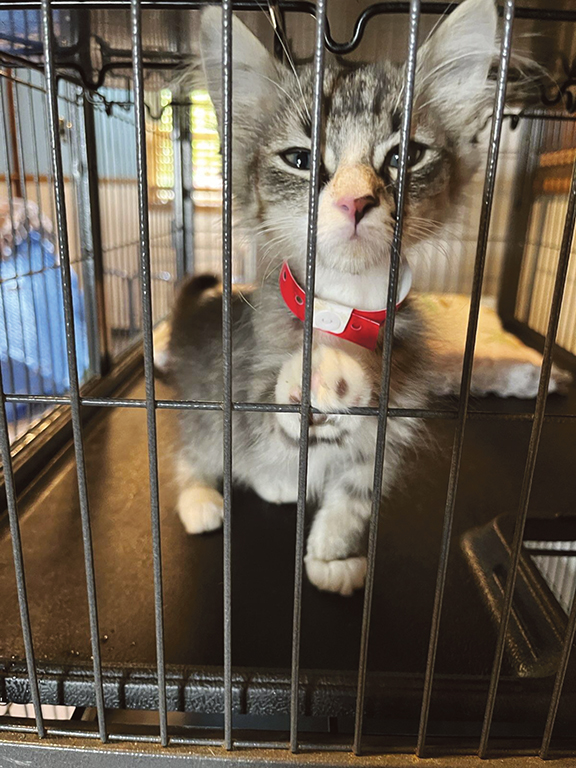EDITORIAL VIEWPOINT: Outlaw Declaw

Imagine someone putting you to sleep and then, when you woke up, your fingers had been cut off at the last joint, taking away the tips of your fingers.
A horrible thought.
Yet, over the years this has happened thousands of times across the country, except it’s not being done to humans, but to household cats.
It’s called declawing and the procedure eliminates not only the cats upper toe joints and nails, but also the felines ability to walk normally as their toes are needed to support the weights of their bodies. Permanent damage can include lameness, arthritis and other complications which can arrive over time.
Sometimes this procedure is needed as the only option for a cat during a medical emergency. Other times it is done to remove the “inconvenience” to the owner caused by a cat scratching the furniture, etc., or simply for cosmetic reasons.
Beyond the inherent physical pains there are a whole host of behavioral problems that can plague the cat who is a victim of this procedure. Declawed cats may begin to avoid using the litter box due to the sharp pain they experience when their tender paws contact the litter. Instead seeking softer spots outside the box like the couch or fresh laundry. And, since they no longer can use their claws as a first line of defense, declawed cats may also tend to bite when threatened.
A cat that lands in a shelter with these types of behavioral problems will be a challenge to adopt out and may spend the rest of its life in a shelter, or face being euthanized.
We support the six legislators, including Rep. Charlie St. Clair of Laconia, who have sponsored a bill to ban declawing cats in New Hampshire. HB 1387 does include an exception to allow the operation in those cases where the well-being of the cat makes it necessary to do so such as, according to the bill, “an existing or recurring illness, infection, disease, injury, or abnormal condition in the claw that compromises the cat’s health.” It would make New Hampshire one of the few states in the country to enact this law and stop this practice when unnecessary.
The bill to ban the declawing of cats (HB 1387) is being considered in the NH House Environment and Agriculture Committee. Very soon they will be deciding whether or not to recommend this bill for passage, and then the bill will be voted on by the entire House of Representatives.
Surprisingly, there is opposition to this bill. Leaders of The NH Veterinary Medicine Association say that the legislature should be careful not to over-regulate animal care with laws like this. As much as we are against oppressive regulations, we question whether declawing simply for the sake of declawing – when the cat’s well-being is not in danger – can be truly considered “animal care” as there is no obvious benefit to a healthy cat, that we are aware of, for being declawed.
A recent article in the NH Union Leader quoted a member of the Dog Owners of the Granite State, who oppose the bill, saying “I haven’t met anybody in my experience who decides to get a cat declawed just for the sake of it.”
We agree that the number of unnecessary declawings are going down and that is a good thing. Still, as long as the practice remains legal some cat owners will continue to put their healthy pets through this unnecessary and devastating procedure if nothing is done to stop it completely.
One voice that doesn’t have a say in this is the cat. So, we take it upon ourselves to speak out in their defense. None of us can feel the discomfort or pain that a declawed cat feels. We’d have to think they’d be for this bill.
Some who oppose this bill may not like what is written here, but we are fortunate as humans that they can’t simply have our fingers removed since they feel inconvenienced by our words.
We ask you to contact your local state representative and urge them to support this bill. You can find their contact information at
gencourt.state.nh.us/house/members.



